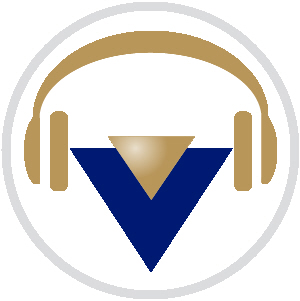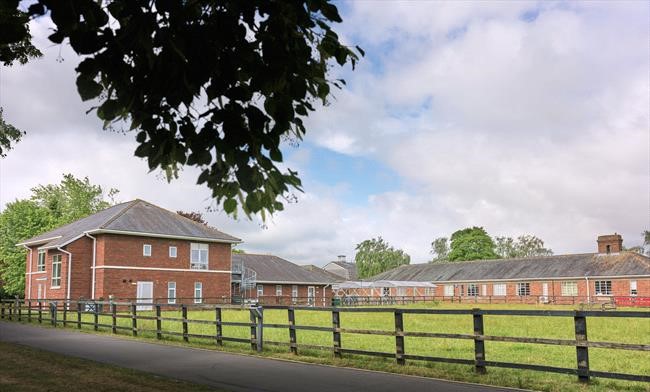 Listen to this story.
Listen to this story.
University of Cambridge Vet School

Photo by Michael Foley / Alamy Stock Photo
The University of Cambridge's veterinary school in West Cambridge, England.
The University of Cambridge's veterinary school is at risk of losing its accreditation in the United Kingdom and possibly elsewhere after dozens of shortcomings were identified in its veterinary medicine program.
The Royal College of Veterinary Surgeons, the U.K.'s regulator for the profession, found the school had failed to meet 50 of 77 accreditation standards following a site visit conducted in May, the RCVS said in a statement.
The regulator has told the school that it must demonstrate substantial improvements to its veterinary program by September or face being stripped of its accreditation. In the meantime, the school has been given "conditional accreditation," in light of what the RCVS described as the "unusually high number" of concerns about the program.
A report prepared by the RCVS details a range of problems touching on everything from the use of expired drugs to hard hats not being worn around horses to the use of a paper-based patient record system that "is not efficient for retrieval of information and is not supportive of research."
Among more serious concerns expressed by the RCVS are that the school's large animal isolation facility is not "fit for purpose," and that large animals with clinical signs requiring isolation "would automatically be euthanised."
The report also states that student concerns about racism have not been taken seriously and that the school failed to adequately promote and maintain diversity.
Specifically, the regulator said the school took a questionable approach to dealing with student complaints of racial discrimination while they were placed at private veterinary clinics that partner with the university to offer students practical experience. For placements where "Black, Asian and students from ethnic minority groups" had experienced discrimination, the potentially hostile clinics were simply assigned a "red flag" to warn students to avoid those clinics. "Problematic placements are not removed from the database despite issues, which may validate discriminatory behaviour in the eyes of other students," the RCVS said.
University admits 'substantial cultural changes' required
Founded more than 800 years ago, the University of Cambridge is one of the oldest universities in the world and widely considered among the U.K.'s, if not the world's, most prestigious. Its veterinary school was established in 1949.
The school is relatively small when measured by the size of its student body. It aims to enroll around 75 students per year, according to a 2024 guide published by the U.K.'s Veterinary Schools Council. The guide states that 63 of the 71 students admitted to the program in 2023 were from the U.K.
In addition to being accredited by the RCVS, the program at Cambridge is accredited by the European Association of Establishments for Veterinary Education. The EAEVE did not immediately respond to a request for comment on what the RCVS's findings might mean for the school's EAEVE accreditation.
The Cambridge school is not among the international programs accredited by the American Veterinary Medical Association Council on Education, a North American accreditor.
The school last underwent an accreditation visit by the RCVS in 2020, and wasn't due for another until 2025. But the RCVS said the emergence of significant concerns about the program over the past year or so had prompted it to bring the visit forward.
In a written response to the RCVS, the school's dean, Dr. Mark Holmes, said the program was "grateful for their insights." Addressing their concerns, he added, would involve focusing on a "sustainable process of course-wide quality assurance and approval rather than just ticking off a 'to-do' list of actions."
The veterinary school also published a response document, which is attached to the RCVS report, that addresses the regulator's concerns point by point. Some concerns, it said, already have been addressed. Others, however, will involve "substantial cultural changes that will challenge well-established norms and practices for colleagues," Holmes said.
Should the school lose its accreditation, students who graduate afterward would not be able to practice in the U.K. automatically. According to the RCVS, graduates of unaccredited schools are not authorized to practice without first passing the RCVS Statutory Examination for Membership, an exam that costs the student £2,500 (US$3,168).
The University of Cambridge did not respond to requests for comment.
Students 'shocked,' concerned for futures
A student at the veterinary school who spoke to the VIN News Service on condition of anonymity because she wasn't sure whether the school would frown upon her talking to the press said she and classmates were "quite shocked" by the large number of shortcomings identified in the RCVS report.
"It feels a little bit out of the blue," she said. "By no stretch of the imagination, from my perspective and from the perspective of a lot of people I've spoken to, I don't think anybody at Cambridge feels that our academic teaching has been compromised; that there's been any impact on our education."
Still, she said many students likely knew there were some failings within the veterinary school that needed to be fixed.
"We're all kind of aware that there are some teething issues that come alongside the fact that it's Cambridge — them being a little bit slow to change because they're so rooted in history and tradition in how they do things," she said.
The student said some of the shortcomings likely are related to the fact that Cambridge has a relatively unique governance system whereby a lot of student oversight is handled by separate colleges. Students at the university live in one of 31 autonomous colleges, each with its own internal procedures.
"There is this inconsistency in support," she said. "Everything's not always totally under the eye of the vet school." On the flipside, she said, the system has benefits: "The personalised nature of our support is definitely a credit to Cambridge, too."
The student observed that students in their earlier years of study potentially have the most to lose, since those in their final year will have graduated by September. Still, she said, the entire student body has been rattled.
"There are some concerns among the final-year students about how this will affect the reputation of the school with regards to getting jobs and the like," she said. "It hasn't been nice for anyone but, of course, I think it's worse for the lower-year students."
Overall, the student said, she's had a "hugely positive" experience studying at Cambridge, at the veterinary school and at the university as a whole.
"Vet school-wise, I think the one thing that really stands out is how much the lecturers and the teaching staff, as well as the clinicians, really care and really want to teach us — and really want to foster an interest in us and see us do well," she said.
"Although we understand there are some shortcomings that need to be addressed, through our meeting with the vet school, it seems that they're quite keen to address those. We as students, or at least the students I've spoken to, are quite keen to have it known that although there are these shortcomings, they're not necessarily going to affect the quality of ourselves as graduates."